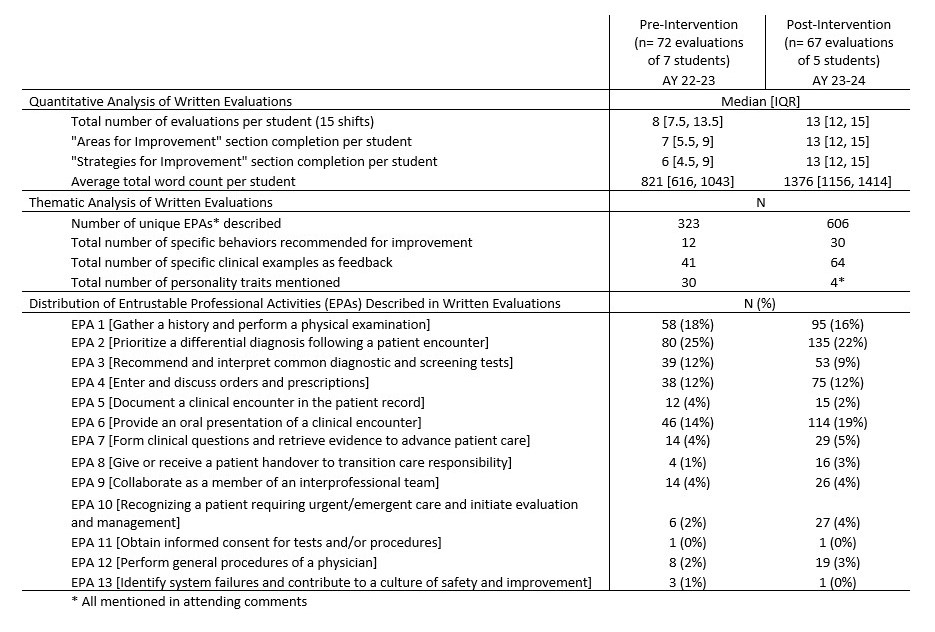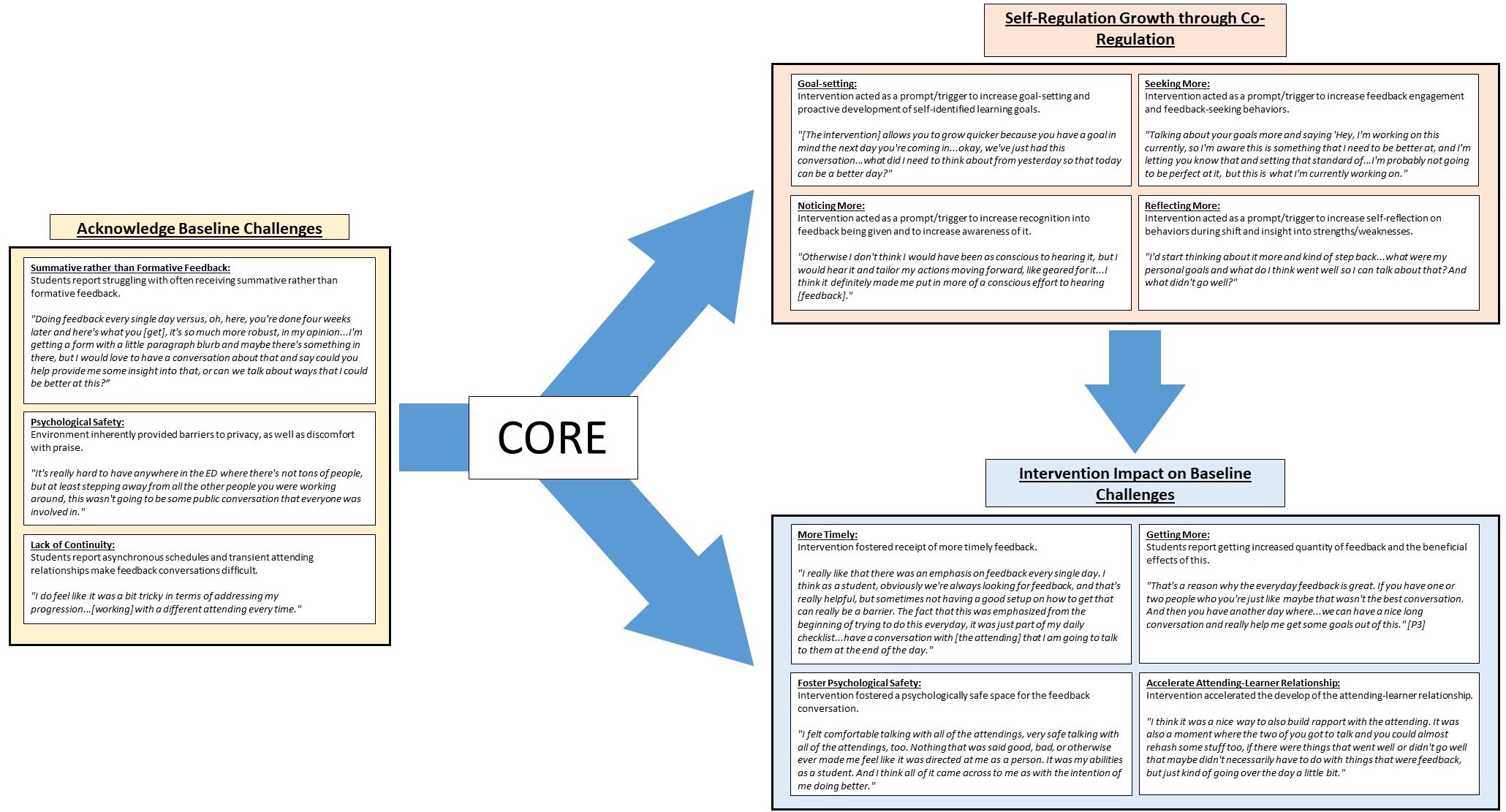Medical Education
Session: Medical Education 4
402 - Utilizing Co-regulated Evaluations (CORE) to Optimize Feedback and Evaluations: A Pilot Study
Saturday, May 4, 2024
3:30 PM - 6:00 PM ET
Poster Number: 402
Publication Number: 402.1360
Publication Number: 402.1360

Michael D. Fishman, MD (he/him/his)
Pediatric Emergency Medicine Fellow
Boston Children's Hospital
Boston Children's Hospital, Boston Medical Center
Boston, Massachusetts, United States
Presenting Author(s)
Background: Feedback is accepted as essential to medical education. However, challenges exist in both the delivery and responses to feedback. Opportunities exist to remove bias, improve timeliness and actionability, and foster learner engagement. One possible solution lies in making feedback co-regulated, meaning learner-driven while preserving the role for supervisors to impact learners' goal-setting, performance monitoring, and reflection.
Objective: 1) To pilot “CO-Regulated Evaluations” (CORE) in which medical students draft an initial version of their end-of-shift evaluation, then finalize it in collaboration with the attending, and 2) To assess the impact of this approach on i) the quantity and quality of feedback and ii) students’ self-regulatory behaviors.
Design/Methods: All medical students completing an advanced clinical elective in the pediatric emergency department in AY 23-24 were included. Participating students were provided a standardized electronic feedback form to self-complete and review and revise with the attending during each shift (Figure 1). These CORE evaluations were compared with written evaluations for students who completed the elective in AY 22-23 (pre-intervention) using descriptive statistics and qualitative thematic analysis. We conducted semi-structured interviews with all students participating in the pilot and again analyzed using a qualitative thematic approach.
Results: During the pilot, 67 evaluations were performed by five rotating students with 90% (60/67) resulting in a feedback discussion with the attending. Compared to the 72 evaluations from the 7 pre-intervention year students, CORE participants had increased number of evaluations per student, identification of areas and strategies for improvement, and total word count per student. Analysis of written evaluations demonstrated increased unique Entrustable Professional Activities described, behaviors recommended for improvement, specific clinical examples, and reduction in personality trait descriptions (Table 1). Thematic analysis of interviews with participating students demonstrated effective co-regulation through the intervention, prompting self-regulatory behaviors in students. Students identified ways the intervention helped mitigate barriers to feedback, including increasing the amount and timeliness of feedback, fostering psychological safety, and accelerating attending-student relationships (Figure 2).
Conclusion(s): This pilot study demonstrates feasibility and impact of co-regulated feedback, including increased quantity and quality of feedback and promotion of self-regulatory behaviors through co-regulation.
.png)


